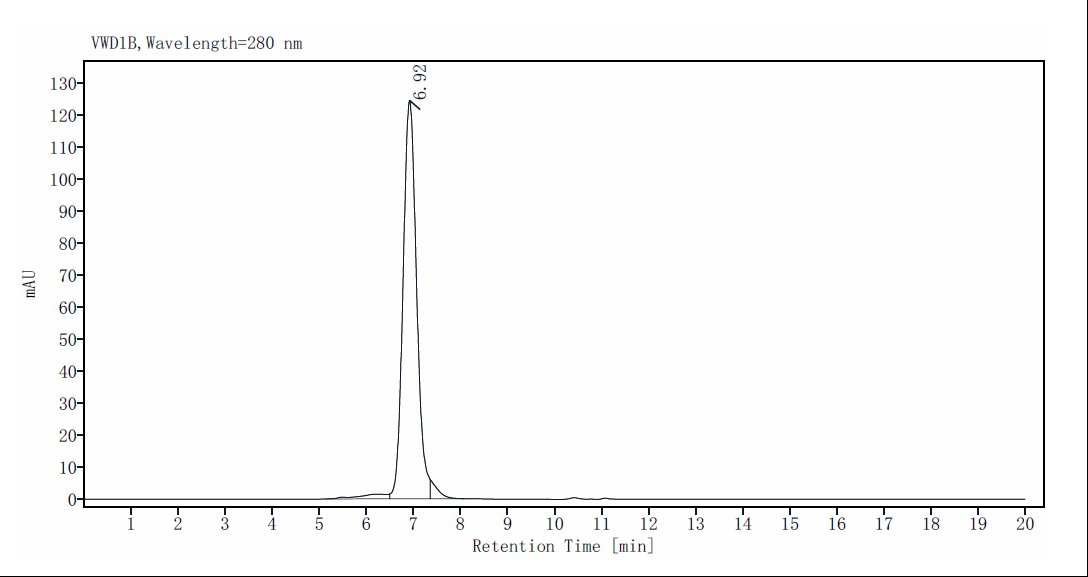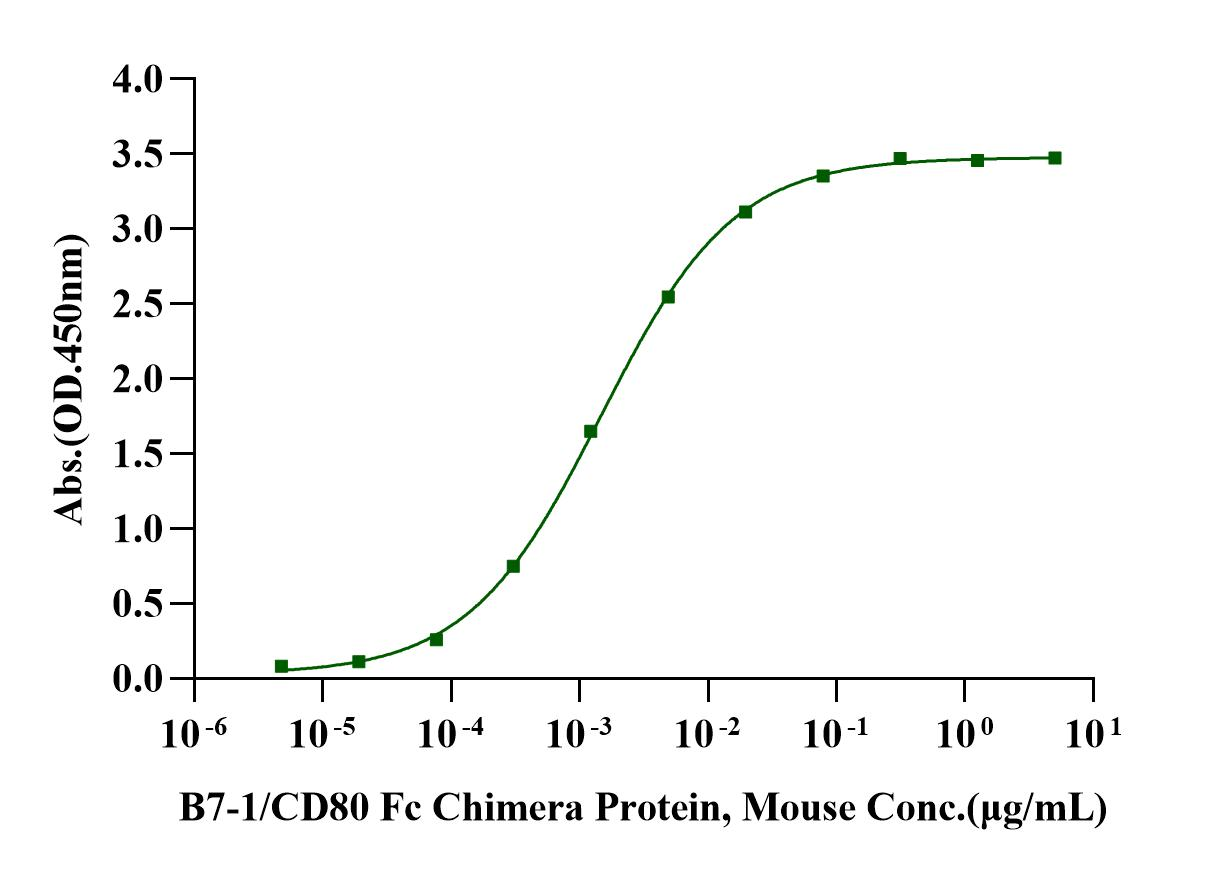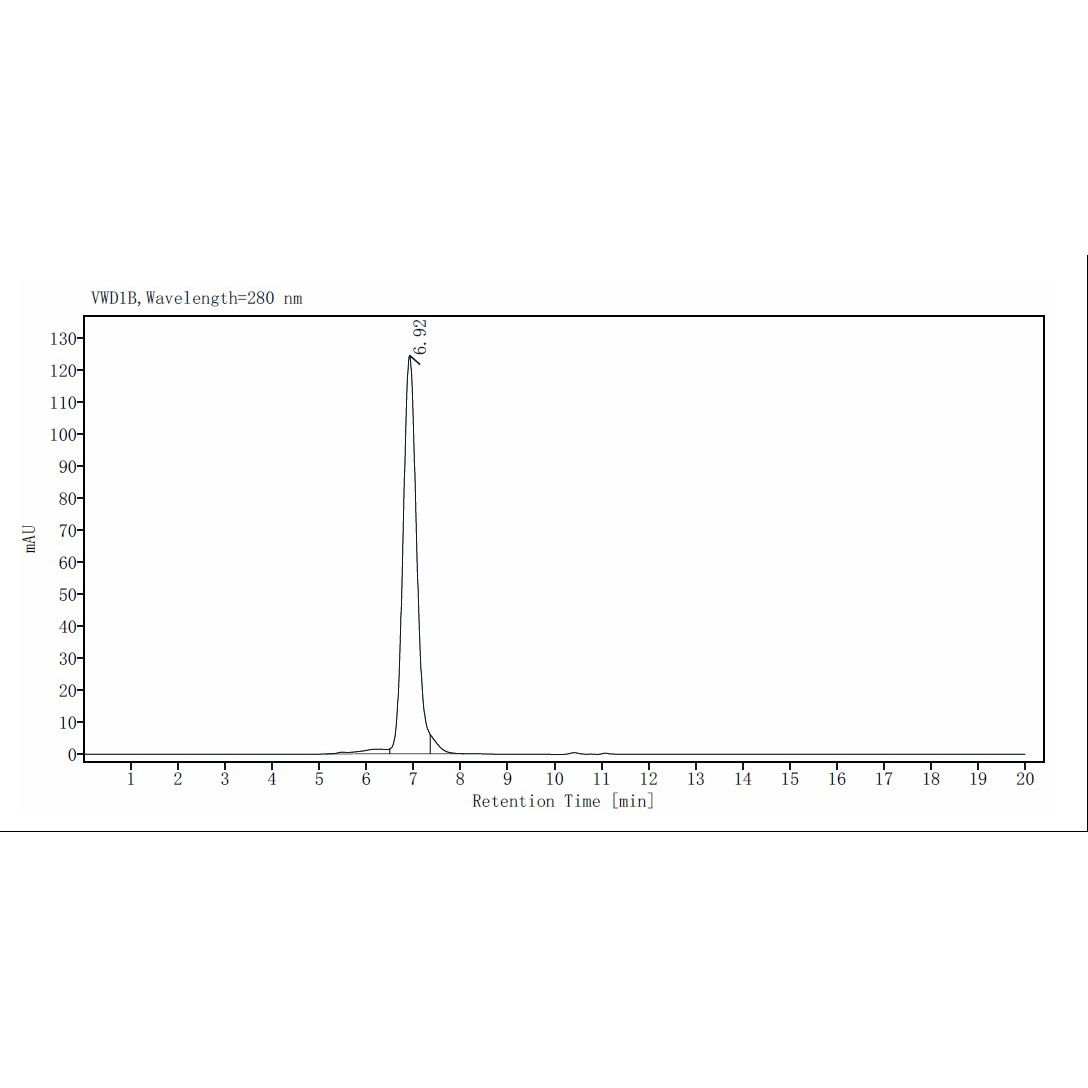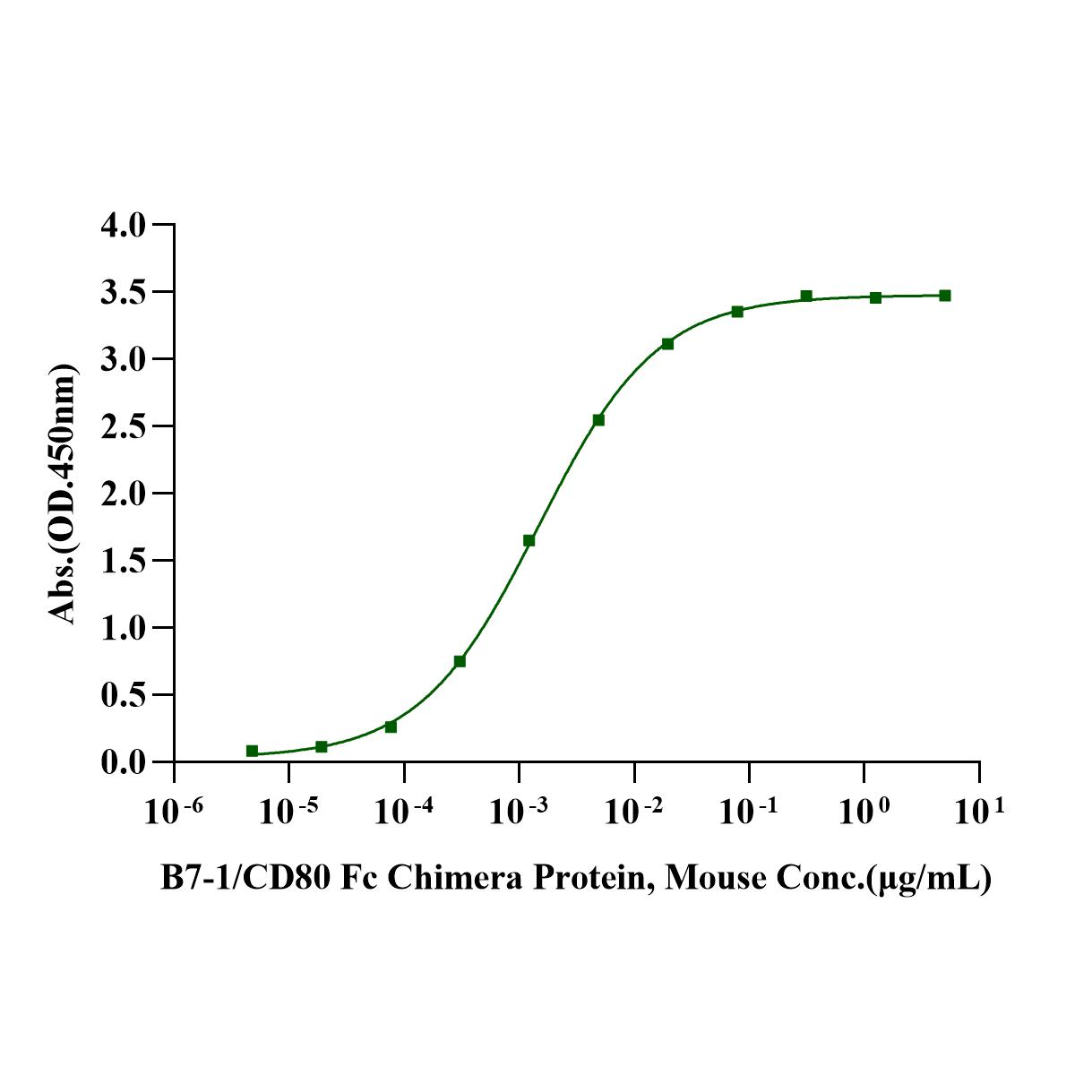1μg (R: reducing condition, N: non-reducing condition).
Product Details
Product Details
Product Specification
| Species | Mouse |
| Synonyms | B7,B7.1,BB1,CD28LG,CD28LG1,LAB7 |
| Accession | Q00609-1 |
| Amino Acid Sequence | Val38-Lys245 with Human IgG1 Fc at the C-Terminus |
| Expression System | HEK293 |
| Molecular Weight | 70-90kDa (Reducing) |
| Purity | >95% by SDS-PAGE, RP-HPLC&SEC-HPLC |
| Endotoxin | <0.1EU/μg |
| Conjugation | Unconjugated |
| Tag | Human IgG1 Fc |
| Physical Appearance | Lyophilized Powder |
| Storage Buffer | PBS, pH7.4, 5% trehalose |
| Reconstitution | Reconstitute at 0.1-1 mg/ml according to the size in ultrapure water after rapid centrifugation. |
| Stability & Storage | · 12 months from date of receipt, lyophilized powder stored at -20 to -80℃. · 3 months, -20 to -80℃ under sterile conditions after reconstitution. · 1 week, 2 to 8℃ under sterile conditions after reconstitution. · Please avoid repeated freeze-thaw cycles. |
| Reference | 1.Carin C. Stamper, Yan Zhang, James F. Tobin,David V. Erbe, Shinji Ikemizu, Simon J. Davis, Mark L. Stahl, Jasbir Seehra,William S. Somers & Lidia Mosyak: Crystal structure of the B7-1/CTLA-4complex that inhibits human immune responses, Nature volume 410, pages608–611 (2001). |
Background
CD80, the first identified member of the B7 family, is a protein that is widely expressed across a variety of tissues and is also found on some malignant tumor cells. This distribution suggests a potential mechanism by which tumor cells can evade the immune system. Recognized as a potent costimulatory molecule, CD80 plays a significant role in how immune cells regulate malignant growth.
CD80 is upregulated in response to cellular stress and is essential for effective immune surveillance, particularly during the process of carcinogenesis. Studies have reported that a low surface expression of CD80 on colon carcinoma cells can be an immune evasion mechanism. Conversely, in colorectal cancers (CRC) with high-frequency microsatellite instability (MSI), a subtype known for its immunogenicity and association with better prognosis, CD80 expression is often increased.
Both in vivo and in vitro research has demonstrated that increased CD80 expression on the surface of tumor cells can effectively activate antitumor immune responses. However, during tumor progression, the expression of CD80 is frequently diminished, possibly due to selective pressures exerted by the immune system.
Given these findings, enhancing CD80 expression in tumors is a strategy that urgently needs to be explored for the development of effective cancer immunotherapies.
Picture
Picture
SDS-PAGE
SEC-HPLC

The purity of B7-1/CD80 Fc Chimera Protein, Mouse is more than 95% determined by SEC-HPLC.
RP-HPLC
The purity of B7-1/CD80 Fc Chimera Protein, Mouse is more than 95% determined by RP-HPLC.
ELISA
Immobilized B7-1/CD80 Fc Chimera Protein, Mouse (Cat. No. UA011080) at 2.0μg/mL (100μL/well) can bind Biotinylated CTLA-4/CD152 Fc Chimera, Mouse with EC50 of 4.09-6.46ng/mL.

Immobilized CTLA-4/CD152 His Tag Protein, Rat (Cat. No. UA010792) at 2.0μg/mL (100μL/well) can bind B7-1/CD80 Fc Chimera Protein, Mouse (Cat. No. UA011080) with EC50 of 1.36-1.57ng/mL.




